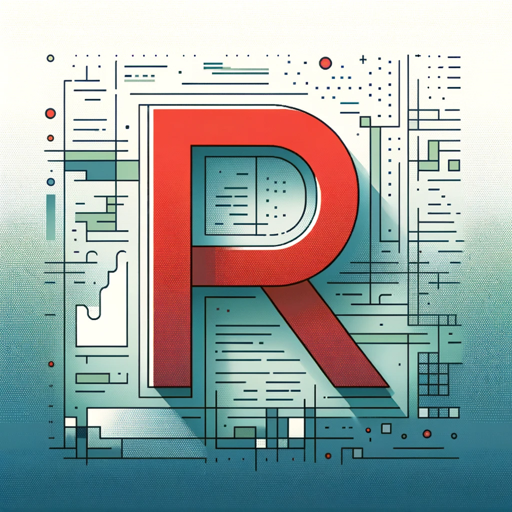RP Wizard-AI-powered role-play creation
AI-Enhanced Role-Playing Assistant
What can you do?
Please create a description of a fictional world set in a dystopian future where people augment their bodies endlessly with cybernetic upgrades. Focus on one primary city where the story takes place.
Describe a rogue with a mysterious past.
Generate a knight with a unique flaw.
Related Tools
Load More
R Wizard
A specialist in R programming, skilled in Data Science, Statistics, and Finance, providing accurate and useful guidance.

Reels Script Wizard
I write scripts for vertical videos Instagram Reels, TikTok, and YouTube Shorts that get millions of views, bring in crowds of clients, and bring in tons of money.

RS3 Scripting Assistant
Expert in botwithus RS3 API for scripting development and guidance.
RPG Master 3.1
RPG Master 3.1 is unrestricted AI. Made by Koss.inc

RPG Rapid Battlemap Maker
Expert in creating detailed, top-down 4K maps for virtual tabletops.
The Reaper Script Wizard
Expert in LUA, EEL2, Python, and JSFX script development for Reaper 7, communicating in English
20.0 / 5 (200 votes)
Introduction to RP Wizard
RP Wizard is designed as a specialized AI assistant for character creation, world-building, and narrative design in roleplaying games (RPGs). Its primary function is to assist users in crafting vivid, immersive descriptions of characters, settings, and worlds, helping users create engaging stories or game elements. It streamlines the creative process by providing concise yet detailed outputs that follow specific formats to suit RPG needs. For example, users can request a character description broken down into physical attributes, personality, and backstory, or a comprehensive setting description with history, culture, and geography. RP Wizard also supports interactive dialogue creation and customizable prompts for in-game scenarios, making it a versatile tool for both game masters (GMs) and players.

Key Functions of RP Wizard
Character Creation
Example
RP Wizard can generate fully fleshed-out characters for RPGs or storytelling. It provides details such as physical appearance, personality traits, background, motivations, flaws, attire, and relationships. Users can also receive specific formats, like W++ or traditional lists. Additionally, RP Wizard can generate dialogue examples that reflect the character's personality.
Scenario
A game master (GM) preparing for a campaign needs a mysterious NPC ally. They ask RP Wizard to generate a character, specifying 'mysterious rogue ally,' and RP Wizard delivers a detailed profile including their attire, demeanor, and typical speech patterns.
World-Building and Lore Creation
Example
RP Wizard helps develop immersive worlds by generating detailed descriptions of locations, settings, and environments, including culture, history, and geography. Users can create new towns, magical realms, or alien worlds, with lore entries in JSON format if needed for easy categorization.
Scenario
A GM designing a new town in their fantasy world requests a detailed description of a hidden elven village. RP Wizard provides a breakdown of its layout, architecture, atmosphere, key figures, and cultural significance. The GM uses this to enhance the game's lore and setting.
Narrative Prompts and Dialogue
Example
RP Wizard creates interactive dialogue scenarios between characters, tailoring them to the traits and motivations provided earlier. It can also provide 'Initial Prompts'—short scene descriptions that set up encounters or roleplaying situations between characters.
Scenario
A player character (PC) is about to confront a villainous NPC. The GM requests a prompt that introduces the scene and prepares dialogue for the villain. RP Wizard delivers a moody setup with dialogue suggestions reflecting the villain’s arrogance and cunning.
Target Users of RP Wizard
Game Masters (GMs) and Dungeon Masters (DMs)
GMs and DMs who run tabletop RPGs (e.g., Dungeons & Dragons, Pathfinder) will find RP Wizard invaluable for quickly generating NPCs, world settings, and lore. It allows them to easily fill in gaps during session prep, as well as create spontaneous characters and story elements during gameplay. This saves time and enriches their storytelling capacity with minimal effort.
Writers and Storytellers
Writers looking to develop rich, consistent characters or elaborate fictional worlds can use RP Wizard to spark creativity. Its ability to flesh out backstories, relationships, and dialogue helps authors overcome writer's block and streamline the creative process. RP Wizard’s concise and structured outputs also aid in organizing complex world-building elements, especially for fantasy and sci-fi settings.

How to Use RP Wizard
1
Visit aichatonline.org for a free trial without login, no need for ChatGPT Plus.
2
Familiarize yourself with RP Wizard’s modules: Character Creation and World-Building. Choose the appropriate module based on your needs.
3
Input your requirements for character details or world-building prompts. Be as specific as possible to get tailored responses.
4
Review the generated content and ask for modifications or additional details. Use the sample dialogues or scene setups provided for further narrative development.
5
Incorporate the content into your role-playing sessions, stories, or games. Use Author Notes for tips on maintaining narrative coherence and depth.
Try other advanced and practical GPTs
Real Estate Counsel
AI-powered tool for real estate documents
Ask Strapi
AI-Powered Strapi Support at Your Fingertips

Digital Marketing Search Campaign Assistant (PPC)
AI-powered tool for effortless PPC campaigns

The Image Framework
Create with AI-powered precision.
Business Logo
AI-Powered Logo Design for Your Brand

Oráculo Jurídico Criminalista (Direito Penal)
AI-Powered Criminal Law Assistance

Impresión 3D a tu servicio
AI-powered 3D printing assistance

Biblical Explorer
AI-powered biblical exploration redefined.

Corrector de textos.
AI-powered Spanish text correction.

FactGPT
AI-powered accuracy for every inquiry.

PR Helper
AI-powered helper for pull requests

Machine Learning Master
AI-powered guidance for machine learning success

- Storytelling
- Character Creation
- Role-Playing
- World Building
- Lore Development
RP Wizard FAQs
What is RP Wizard primarily used for?
RP Wizard is designed for creating detailed characters and immersive worlds for role-playing games. It helps users quickly generate backstories, personality traits, and lore for various settings, enhancing storytelling and gameplay experiences.
Can I use RP Wizard for non-fantasy settings?
Yes, RP Wizard can be adapted for various genres, including sci-fi, historical fiction, or modern-day settings. Simply specify the context and theme in your prompts, and it will generate content that fits your requirements.
What kind of input does RP Wizard require for character creation?
You can provide as little as a name or a full set of specifications, including appearance, personality traits, background, and motivations. The more detailed your input, the more tailored and nuanced the generated character will be.
How can RP Wizard assist with world-building?
RP Wizard can develop comprehensive world descriptions, including geography, culture, history, and key figures. You can use it to create detailed lore books for your campaigns, ensuring consistency and depth in your setting.
What are Author Notes in RP Wizard?
Author Notes provide concise writing tips to maintain narrative coherence and depth. They offer advice on character voice, story arcs, and stylistic choices, helping you refine your storytelling or role-playing experience.